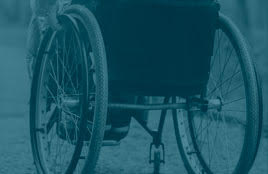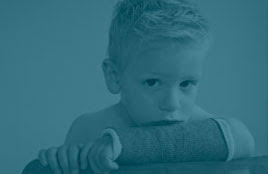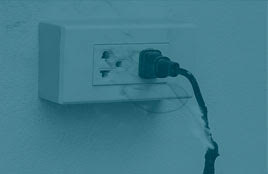Nursing, Medical, Pharmacy and other Students work in hospitals. This is necessary because the students must have hands on experience participating in actual patient care. When these students participate in the preparation and administration of medication, they can become involved in medication errors. Often, errors are reported that also mention the “instructor.” An instructor as defined here is the healthcare professional overseeing the student’s work while in the hospital.
Analysts have reviewed documentation of medication-error events mentioning students submitted to the Pennsylvania Patient Safety Authority from July 2010 through June 2015. Of the 711 medication error events involving students reported, 87.3% reached the patient. The most common types of events reported by facilities were extra dose, dose omission, wrong time, wrong dose/overdosage, and wrong patient. The following are examples of extra dose, wrong dose/overdosage, and wrong patient event reports made to the Pennsylvania Patient Safety Authority:
- Student gave medication at 4:30 p.m. (4 p.m. scheduled dose); however, was unaware that the medication was given previously at 3:30 p.m. causing the next dose (due at 10 p.m.) to appear as given as an off schedule dose. Student nurse and instructor relied on paper MAR [medication administration record], which did not reflect medication signed off as given, without checking the computer system to determine if medication had previously been given. Upon further investigation, found students do not have access into the computer system, they work directly under the supervision of their instructor. Physician notified of incident, patient’s vital signs assessed, orders reviewed, 10 p.m. dose of medication held. No harm reached the patient.
- The nurse was precepting a nursing student. The nurse handed the student a 30-unit insulin syringe. After seeing this syringe, the student indicated that he gave the prior patient the wrong dose using a 100-unit syringe. The student had administered 90 units instead of 9 units. The attending physician was notified; ordered IV [intravenous] fluids with dextrose and hourly finger-stick glucose checks.
- Instructor and student nurse administered a dose of Neurontin 400 mg to the wrong patient. Attending physician alerted. Per the student nurse and instructor, name band checked.
Nearly 4% of reports did not involve students, but rather involved instructors. Following are examples of events involving instructors and nursing or pharmacy students:
- Nursing instructor removed the wrong patient’s medication and tubing from the patient medication bin, and the student nurse scanned the dose [barcode], flushed the syringe pump tubing, and connected the Rocephin dose to the IV. Instructor noted the wrong patient name on another medication removed from bin and stopped the Rocephin. Syringe pump with wrong tubing was running for approximately two to three minutes at 0.3 mL/min before being stopped and the correct tubing applied. Both patients were receiving same dose of Rocephin.
- One Percocet tablet was given to the wrong patient by an unattended nursing student. Physician notified. Medication policy was reviewed with the student nurses.
- Primary nurse administered the patient’s 10 a.m. medications and did not complete computer documentation that this occurred. Student nurse assigned to the patient administered 10 a.m. medications. The patient was confused and unable to communicate that she received duplicate medications.
- Patient told pharmacy student that she was taking fluticasone nasal spray. Pharmacy student accidentally logged fluticasone as fluticasone 50 mcg inhalation powder instead of the nasal spray. Student was unaware that there is an inhaler and nasal spray both with a 50 mcg strength. Student picked the first 50 mcg product she saw.
Although students do not intend to harm a patient, they are sometimes involved in medication errors. The level and depth of a student’s experience and academic preparation may play a role in some of the events reported to the Authority. It has been reported that students’ inexperience and distractions contribute to medication errors. Students have also reported being inadequately prepared for medication administration.
It is standard for healthcare students to be overseen by faculty or preceptors during their clinical experiences. However, studies have shown that many students do not receive appropriate supervision while performing clinical responsibilities. The same study reported that preceptors cannot always be physically present with a student while the student is administering a medication, because they supervise multiple students. When the preceptor is with another student, the responsibility of supervision often falls to the staff nurse. This responsibility, added to typical patient care responsibilities, may create situations in which direct student supervision may not be possible.
Suggestions to Reduce Medication Errors by Students
The Pennsylvania Patient Safety Authority and researchers who have looked into the issue of medication errors involving students have suggested the following:
- Ensure students participating in the medication-use process are appropriately supervised by faculty or preceptors. This includes having the instructor or preceptor present at the bedside during the time of medication administration.
- Verbally confirm actions of medication administration in presence of instructor or preceptor.
- Ensure that staff completes documentation in a timely fashion if students are involved in patient care, so the record of medication administration is accurate.
- Incorporate medication safety throughout student curriculums.
- Establish an orientation and training process for students and faculty. Include a review of the hospital’s electronic systems for administration / recording of medication administration.
Pennsylvania is home to 85 nursing programs, 7 pharmacy schools, and 7 medical schools. Direct patient-care experiences are vital for students to prepare for the real world. This hands-on experience places them in a position to be involved in errors as well as catch potential or actual errors. Hospitals are aware of the risk for error when students and instructors are involved in the administration of medications, are expected to implement processes and programs to reduce this risk of error.






